Complete your selection
Betaine HCl is a natural stomach acidifier made from betaine, an alkaloid found in foods such as beetroot. It is designed to compensate for the decline in gastric acidity typically seen after the age of 50, thus providing benefits for improving digestion, nutrient absorption and the prevention of gastrointestinal infections. The supplement is enzymatically stabilised (by the presence of proteases) to ensure it remains effective over time.
What does hydrochloric acid do in the stomach?
After food moves down the oesophagus, it enters the stomach, the lining of which immediately secretes hydrochloric acid. This highly acidic fluid is produced (at a rate of around two litres a day) by parietal cells every time we eat. It is strong enough to destroy the vast majority of bacteria that enter the digestive tract along with food.
Its main role, however, is to promote protein digestion by activating pepsin. Secreted by other stomach cells, this digestive enzyme is only effective in highly acidic environments. How is the stomach able to withstand the corrosive effect of hydrochloric acid? Its inner walls are coated with a protective layer of mucus produced by certain stomach cells. When production of this mucus is inadequate, however, the gastric mucosa rapidly erodes, potentially resulting in ulcers or gastritis. If nothing is done to address it, the acid may even perforate the stomach wall, allowing its contents to pass into the abdominal cavity, and cause peritonitis.
What happens, on the other hand, if the stomach fails to produce enough hydrochloric acid?
Pepsin, the active dietary protein-digesting enzyme of the stomach, is no longer activated, marking the start of digestive problems. Hydrochloric acid has four fundamental roles:
- To break down proteins into essential amino acids and micronutrients through activation of pepsinogen.
- To stimulate the pancreas and small intestine in order to support the production of digestive enzymes and bile, both of which are essential for carbohydrate and fatty acid digestion.
- To promote absorption of iron, zinc, magnesium, folic acid and vitamins C and A (1-2).
- To prevent infections by killing pathogenic bacteria and yeasts present in ingested food (3). Scientists have thus shown that one of the deadliest forms of pathogenic bacteria, E. coli, is inactivated when the stomach is sufficiently acidic (4). Conversely, research has also demonstrated that inadequate levels of acidity are associated with rapid invasion of the colon by microorganisms, leading to a range of uncomfortable gastrointestinal problems (5).
What causes inadequate production of hydrochloric acid (hypochlorhydria)?
Hypochlorhydria, or a lack of hydrochloric acid, is much more widespread than you might think. Normal stomach acidity corresponds to a pH of 1-2 (6). As we age, however, the stomach’s parietal cells produce less hydrochloric acid (7), and our pH rises … In fact, 50% of those over 60 have an inadequate level of stomach acidity. By the age of 85, this proportion rises to almost 80%. What’s more, there are additional factors that can exacerbate the situation:
- Infection by Helicobacter pylori (8) (one in two of us may be affected, most of us without realising it).
- Repeated use of antacid medication to treat acid reflux (proton pump inhibitors).
- Immune system problems such as pernicious anaemia, a disease in which antibodies attack the parietal cells that produce acid.
What are the effects of low stomach acidity?
The effects of inadequate acidity spill over into many of the body’s functions.
- Inefficient digestion, leading to deficiencies and a general weakening of the body. The decline in acid production results in low levels of activated pepsin. This makes digesting proteins very difficult and causes deficiencies which are damaging to our general health. In addition, undigested proteins acidify the blood, causing alkaline minerals to leach from all over the body, including the bones, a process that plays a key role in the development of osteoporosis.
- The proliferation of bacteria in the gut. Low gastric acid levels lead to bacterial proliferation in the small intestine, causing numerous digestive problems (9), not least Small Intestinal Bacterial Overgrowth, or SIBO. Sufferers of SIBO complain of bloating, flatulence, belching and abdominal pain. Undigested proteins are also a source of toxins in the gut and may contribute to the onset of other chronic intestinal problems.
- Problems with absorbing medication. Stomach acidity is a key factor in the dissolution and solubility of a number of drugs.
In addition, a number of health issues are linked to problems with gastric acid production, particularly allergies, asthma and gallstones.
What is in Betaine HCl
Any questions?
Our team of nutrition experts and scientists has the answers.
Betaine HCl should be taken before meals in order to prepare the stomach and facilitate digestion. Take care to chew food properly during the supplementation period. If you’re not sure whether your acidity levels are adequate, you can follow these steps:
- Start by taking a tablet of Betaine HCl just before a protein-rich meal.
- If you experience some gastric discomfort, you probably do not have a problem producing hydrochloric acid in your stomach. If you feel no such undesirable effect, take two tablets with each protein-containing meal. A dose of two tablets of Betaine HCl delivers the equivalent of 10 mmol of H+ ions, that’s a pH of 1.40 in 250 ml of water.
- If you feel no discomfort over the next few days, keep taking this dose. The symptoms associated with low gastric acid production should soon diminish.
- When eating lighter meals, adapt the dose.
Betaine HCl can be combined with other supplements available to buy at Supersmart, such as this one for combatting Helicobacter pylori, H. Pylori Fight, if you suspect the presence of this bacteria in your stomach. To maximise protein absorption, it’s also a good idea to supplement with organic aloe vera. Lastly, in order to boost your gut flora – which may have been destabilised by the bacterial proliferation enabled by low gastric acidity - it can be really helpful to add in the excellent probiotic Probio Forte. In terms of phytotherapy, peppermint and gentian are also recognised for their ability to stimulate secretion of hydrochloric acid.
Hydrochloric acid supplements are not recommended for those suffering from ulcers, nor should they be taken by pregnant women experiencing problems with stomach acid, or those taking antihistamines (H2) or proton pump inhibitors like omeprazole or other generic forms.
The tablets should not be crushed into food. Alcohol should be avoided. Consult a health professional before supplementing if you are taking anti-inflammatory drugs, for example, NSAIDs, aspirin or ibuprofen.
Betaine hydrochloride is a supplement that’s been used for more than a century for naturally restoring gastric acidity and supporting digestion. Betaine is a completely natural, safe substance (10), found in a wide variety of foods such as beetroot, spinach and whole grains. It offers a range of additional benefits:
- It helps maintain the body’s water and salt levels.
- It protects cells and their constituents from environmental stress.
- It helps protect the liver from hepatotoxins such as ethanol or carbon tetrachloride.
- It has a beneficial effect on hepatic steatosis (fatty liver), painful gallstones and hyperglycaemia.
- It helps improve brain activity, primarily as a result of its role in the methionine cycle.
- It enhances physical and athletic performance, due mainly to its ability to increase the body’s levels of nitric oxide.
Buy Betaine HCl to compensate for the decline in gastric acidity.
january 5 2025
Very good supplements
july 7 2023
Your products are good.
january 5 2026
Ce produit peut être efficace si on est sûr de manquer d’acide gastrique et si on utilise la dose adéquate ( faire le test pour cela).Toutefois malgré toutes les certifications concernant l’absence d’additifs , je me demande si Le laboratoire ne fait pas l'impasse sur certains tels que le stéarate ou….
This product can be effective if one is sure of lacking gastric acid and if the adequate dose is used (do the test for this). However, despite all the certifications regarding the absence of additives, I wonder if the laboratory is overlooking some such as stearate or...
 see the translation
Translated by SuperSmart - see the original
see the translation
Translated by SuperSmart - see the original
december 31 2025
Comprimés difficile à avaler. Il serait mieux en gélules
Tablets difficult to swallow. It would be better in capsules.
 see the translation
Translated by SuperSmart - see the original
see the translation
Translated by SuperSmart - see the original
december 27 2025
Je n’ai pas pu l’utiliser encore beaucoup pour voir son efficacité car je ne comprends pas comment il faut administrer les tablettes. Ce n’est pas pratique du tout à avaler même en coupant en 2. Il y a de quoi s’étouffer. Est ce qu’il y a une bonne manière de faire ?
I haven't been able to use it much yet to see its effectiveness because I don't understand how to administer the tablets. It's not practical at all to swallow even when cut in half. It's a choking hazard. Is there a good way to do it?
 see the translation
Translated by SuperSmart - see the original
see the translation
Translated by SuperSmart - see the original
Need help?
You may also like
of experience
your money back
##montant## purchase

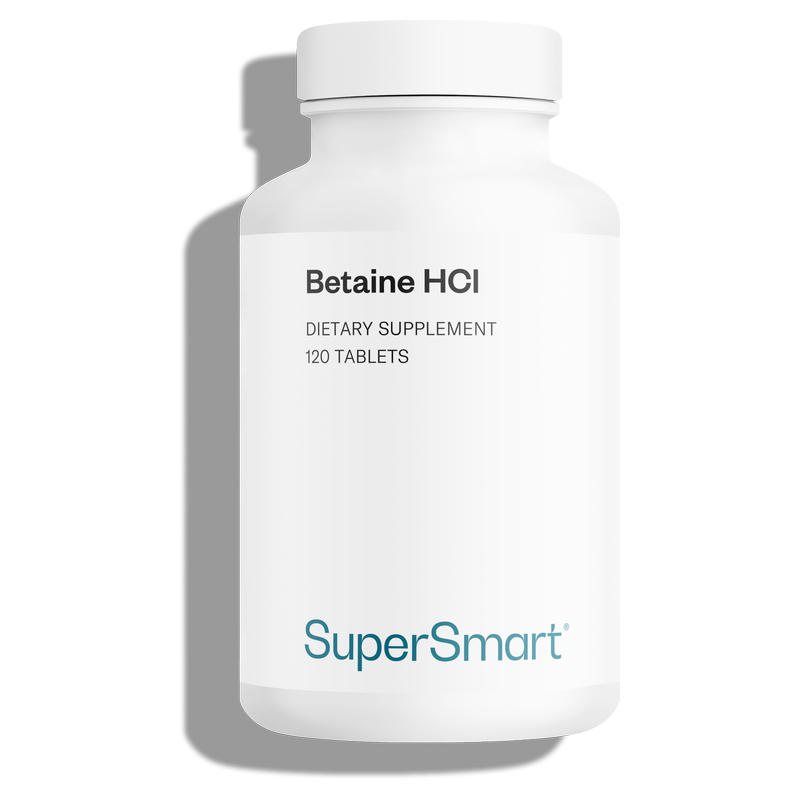
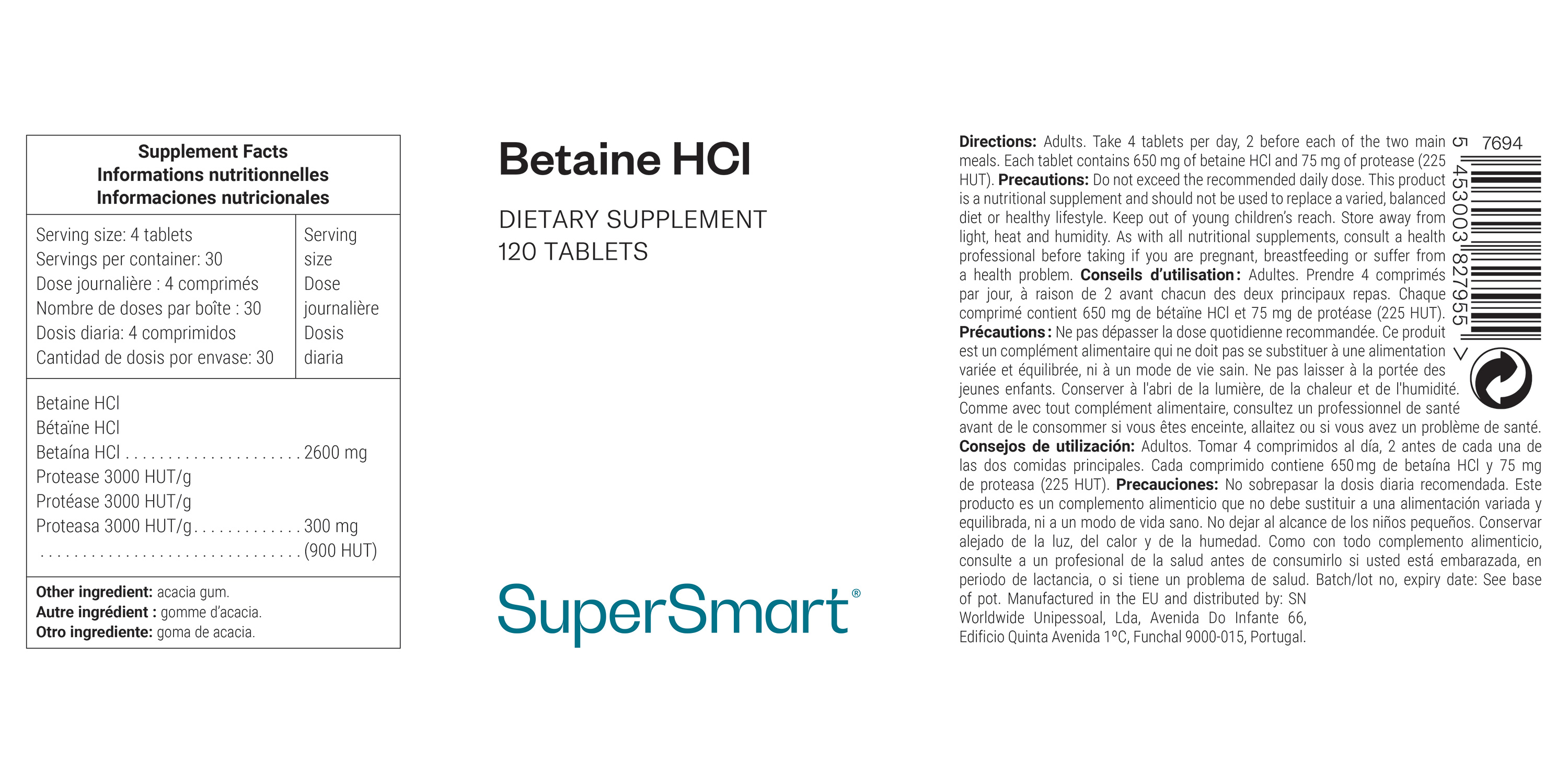
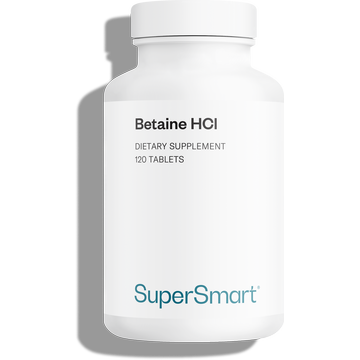
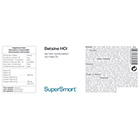

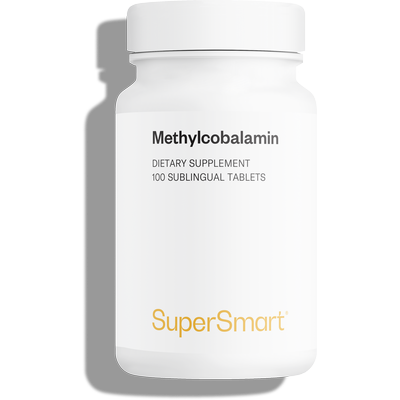
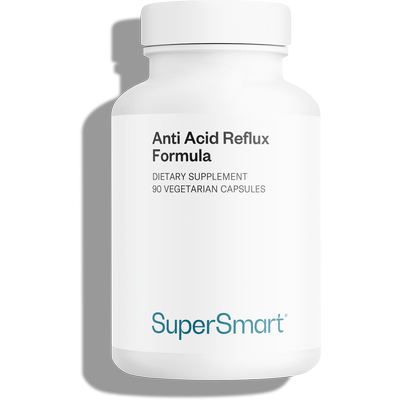
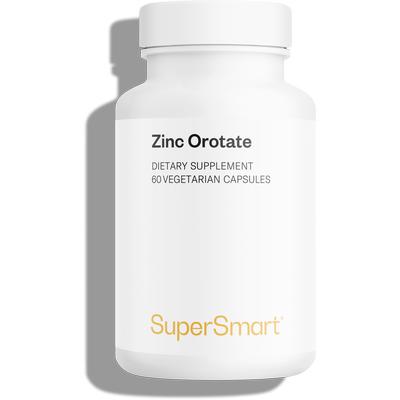
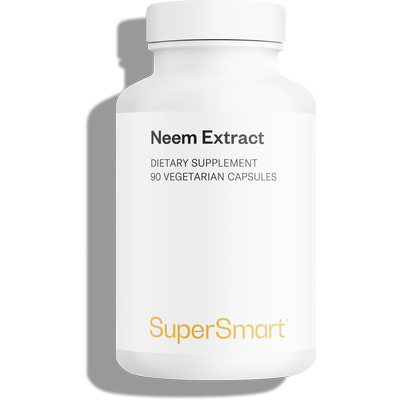
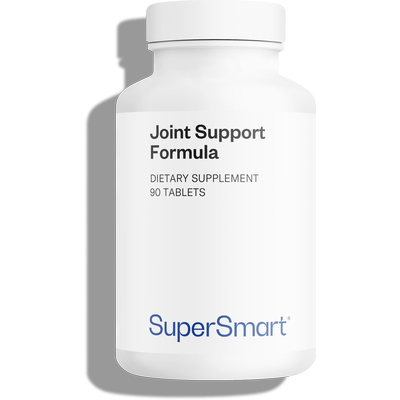
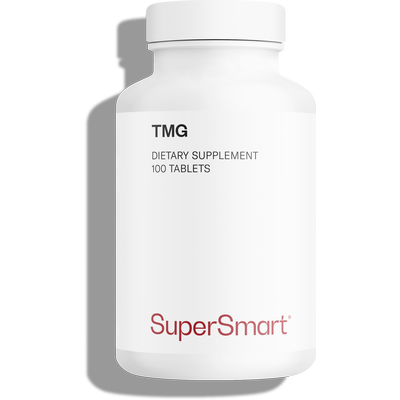
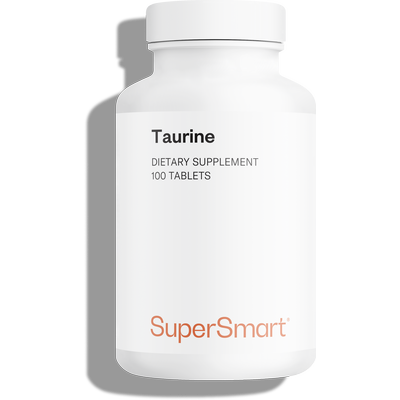
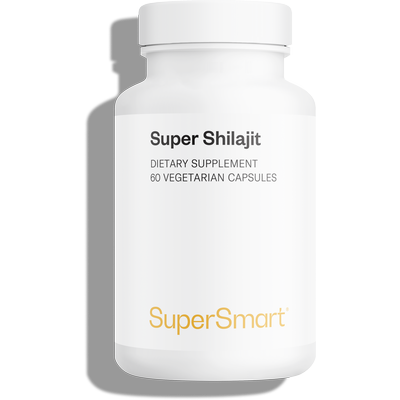
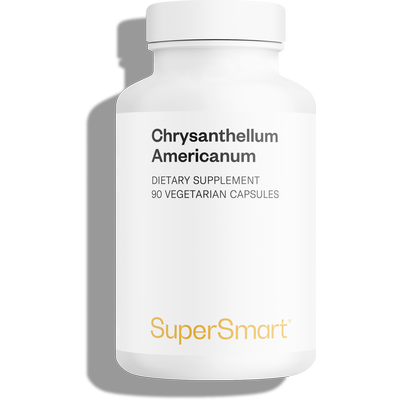
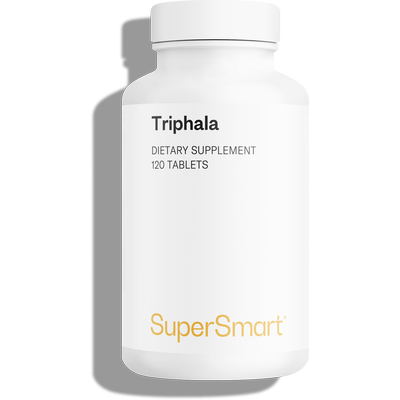
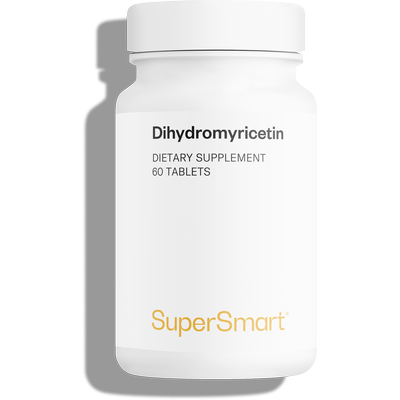

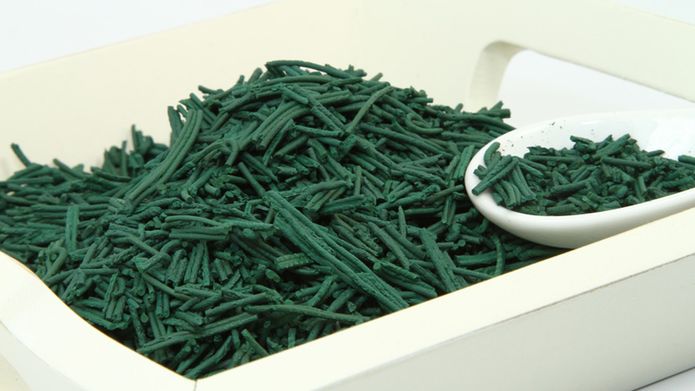

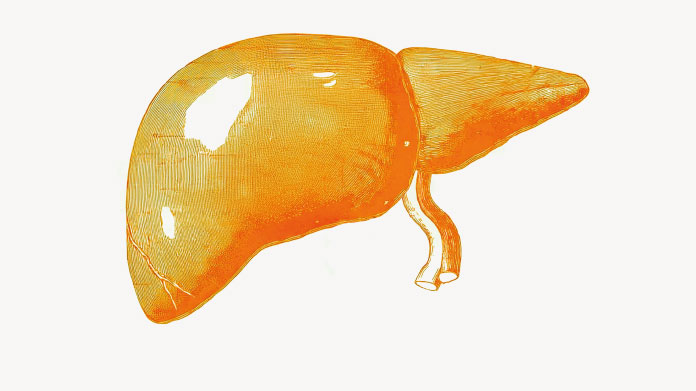
Bonjour Pascale,
Merci dâavoir pris le temps de partager votre avis.
Vous avez tout à fait raison : certains compléments nécessitent une prise prolongée pour que leurs effets soient pleinement ressentis. Nous serions ravis dâavoir votre retour après ces 3 mois dâutilisation. Votre expérience est précieuse, autant pour nous que pour les autres utilisateurs.
En attendant, nâhésitez pas à nous contacter si vous avez des questions ou besoin de conseils personnalisés.
Bien à vous,
Gaëlle â Service Client Supersmart